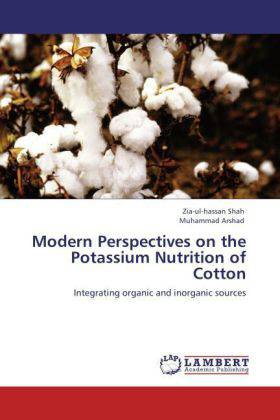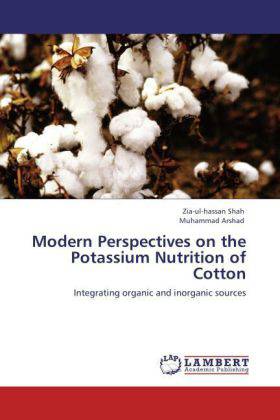
- Afhalen na 1 uur in een winkel met voorraad
- Gratis thuislevering in België vanaf € 30
- Ruim aanbod met 7 miljoen producten
- Afhalen na 1 uur in een winkel met voorraad
- Gratis thuislevering in België vanaf € 30
- Ruim aanbod met 7 miljoen producten
Zoeken
Modern Perspectives on the Potassium Nutrition of Cotton
Integrating organic and inorganic sources
Zia-ul-hassan Shah, Muhammad Arshad
Paperback | Engels
€ 67,45
+ 134 punten
Omschrijving
Potassium (K) is the most influencing plant nutrient in cotton production due to its positive effects on the yield and fiber quality of cotton. However, due to the scorching prices of K fertilizers, the farmers around the globe seldom include K in cotton nutrition program. A variety of strategies are devised for low-K-input sustainable cotton production, including the identification of K-use-efficient genotypes and the integrated use of inorganic and organic sources of K. This monograph focuses upon K use efficiency of cotton genotypes, in a series of hydroponics, pot and field experiments, and how it is affected by inorganic and organic K fertilizers. Various factors affecting productivity of selected cotton genotypes under K deficiency stress are highlighted. Organic and inorganic K fertilizers are compared for correcting K deficiency in cotton. These studies have implications for agriculture particularly in developing countries where K fertilizers are scarce and expensive. This well written and easy to read book is practically useful for undergraduate and postgraduate students, research workers and extensionists.
Specificaties
Betrokkenen
- Auteur(s):
- Uitgeverij:
Inhoud
- Aantal bladzijden:
- 164
- Taal:
- Engels
Eigenschappen
- Productcode (EAN):
- 9783846554876
- Uitvoering:
- Paperback

Alleen bij Standaard Boekhandel
+ 134 punten op je klantenkaart van Standaard Boekhandel
Beoordelingen
We publiceren alleen reviews die voldoen aan de voorwaarden voor reviews. Bekijk onze voorwaarden voor reviews.











